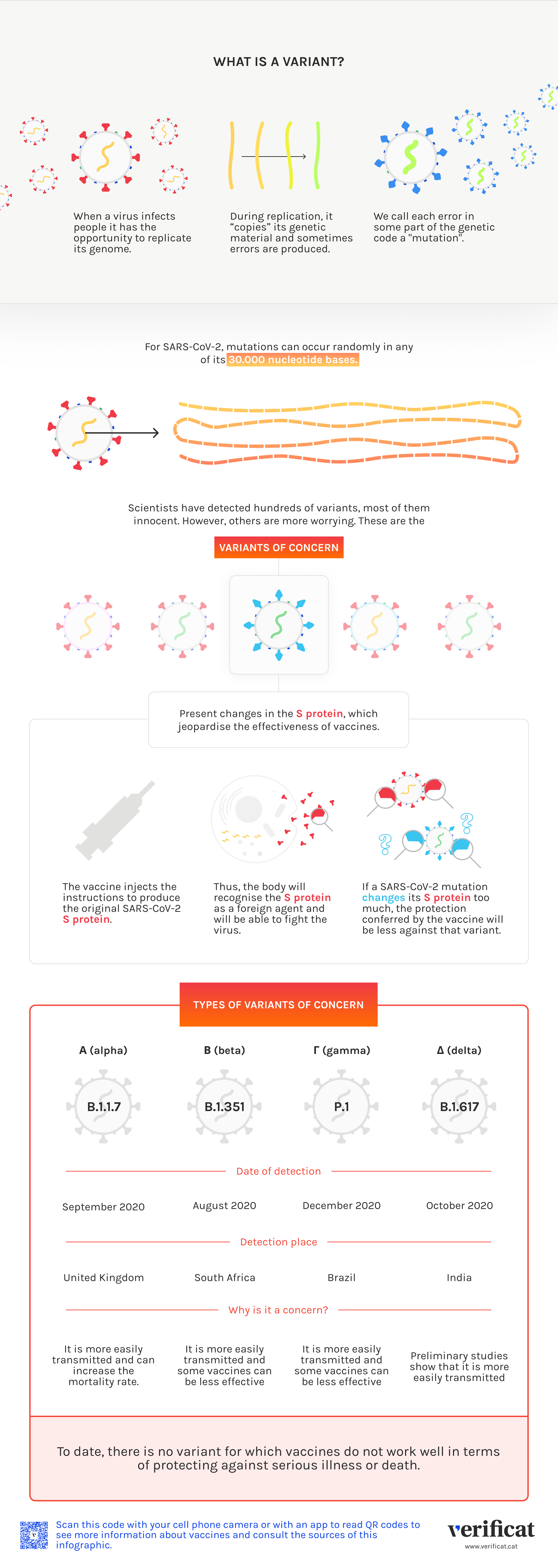Yes, it makes sense to get vaccinated despite the virus mutates
Just because new variants emerge does not imply that all them will affect the effectiveness of vaccines. In case they already did, the injections can be adapted to avoid them losing efficacy

You have asked us whether it makes sense to continue vaccinating if the virus continues mutating and new variants such as the British or the Brazilian emerge. The truth is yes: just because new variants emerge does not imply that all them will affect the effectiveness of vaccines (in fact, most variations do not), and in case they already did, the injections can be adapted to avoid them losing efficacy.
It is natural for a virus to mutate. SARS-CoV-2, as any other virus, does it constantly because it makes some mistakes during the replication of its genetic material. “The mutations (or changes) can take place randomly in any of the 30,000 bases, or nucleotides, comprising its genome”, Adelaida Sarukhan, an immunologist and science writer at the Institute for Global Health (ISGlobal, in Catalan) in Barcelona, indicates to Verificat.
In the case of coronaviruses, such as SARS-CoV-2, mutation is quite frequent: it is estimated to occur about twice each month. “Hundreds of variants have been described. The great majority of these variants are “innocent”, points out Sarukhan. However, a few have been of greater concern; they belong to what the scientists call variants of concern (VOC): “B1.1.7, described in the UK, B1.351 described in South Africa, P.1 (in Brazil), the Indian variant and another two described in California and New York share some mutations in the Spike protein that have been shown to increase their infection capacity, their lethality and/or their capacity to escape natural or vaccine-mediated immunity”.

The Indian variant
As Sarukhan points out, “the clinical trials and vaccines at a large scale —hundreds of million people vaccinated all over the world— clearly indicates that vaccines protect very effectively against the severe forms of the disease, even in people infected with the new variants”. For the case of the Indian variant, “for the moment there is not any evidence showing that it reduces the efficacy of the vaccines”, Sarukhan concludes, who cites a pre-print (a study that has not been yet revised by scientific journals), and that points that both Covishield and Covaxin “are still able to neutralise the Indian variant”. The investigation highlights that “a slight decrease of the neutralising activity is observed”, that is, a higher level of antibodies is needed to combat this variant.
Vaccines manufacturers are currently developing alternatives in case a new variant suddenly emerges being sufficiently different for vaccines to lose their effect. Re-designing injections to adjust them to the new strains is not something new nor extraordinary: every year, the injections against the flu must be redesigned because the old ones become obsolete.